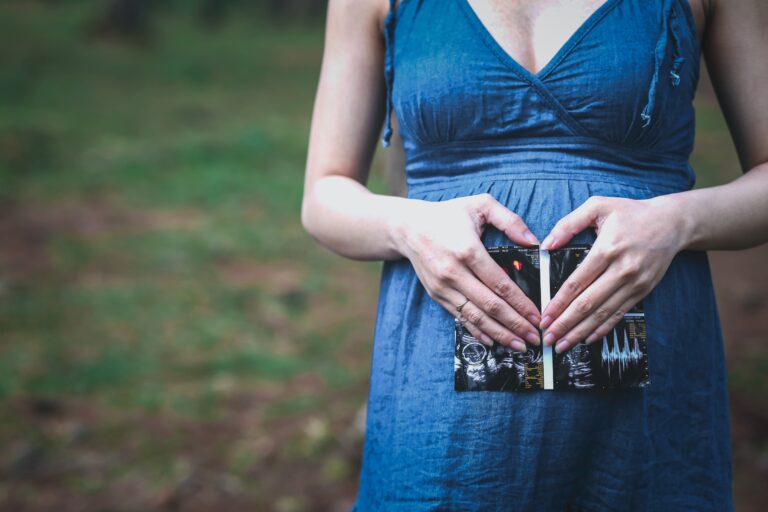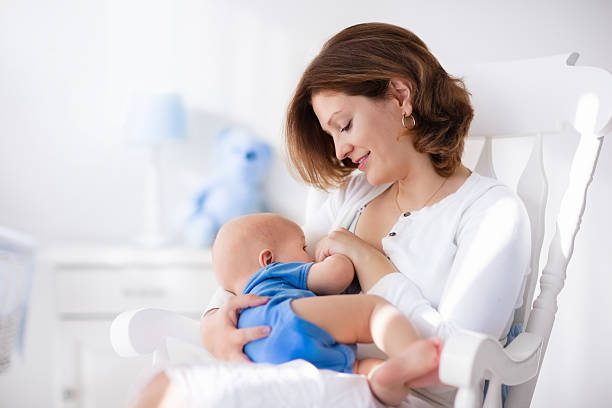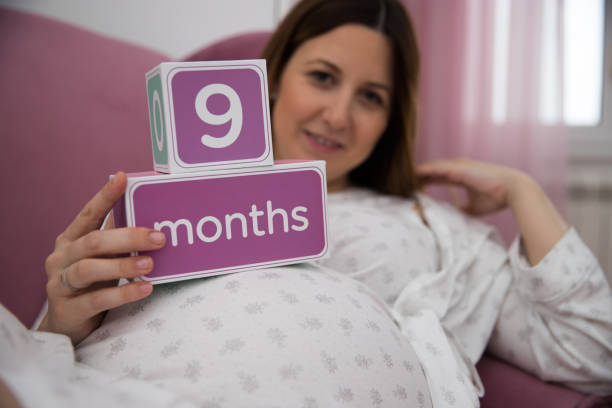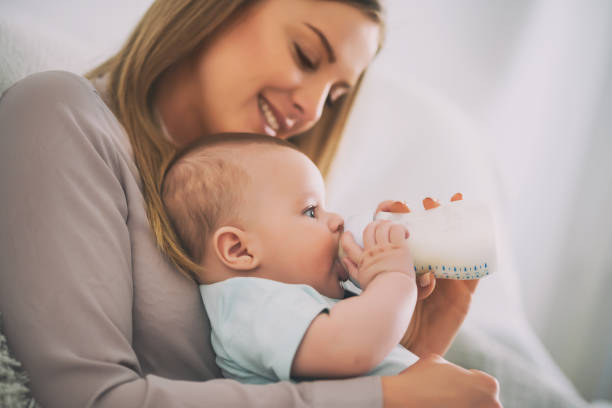How To Keep Pacifier In Newborn Mouth
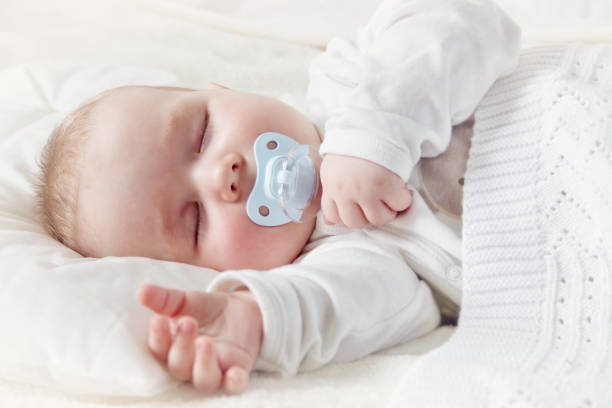
Are you worried about How To Keep Pacifier In Newborn Mouth? Don’t break a sweat; this read will help you know all about it.
Pacifiers are probably the best invention yet for any parent; they help the baby stay calm at all times. This is because they interpret the feeling of a mother to a baby; this way, the baby will not cry without a legit reason, giving the parents time to themselves.
Most parents tend to keep the Pacifier in their baby’s mouth all night so all of them can have a sound sleep. But the main question is how to keep the Pacifier in the baby’s mouth at night because it keeps falling off.
Luckily, you found this read; as an experienced mother, I went through all the hectic and found the best ways to make Pacifier stay mouth day or night. So let’s wait no more and dig in.
But first, let’s know why does the Pacifier keeps falling out of your baby’s mouth.
Table of Contents
Why is the Pacifier falling out of my baby’s mouth?
It’s essential to understand why your baby keeps spitting out Pacifier or why he won’t hold Pacifier in his mouth. This part is critical because every baby is different, and maybe you will come up with a solution yourself once you know the root of the issue.
- He is hungry
The first reason that your baby might not be taking the Pacifier is that he is hungry. Pacifier imitates a mother’s breast for a baby so that he will take it in for the time being, but once the baby realizes that there is no milk, they will throw it out.
If this happens they cry, make sure they are adequately fed before giving them the Pacifier.
- Sucking issue
You might not know, but some babies can’t suck as efficiently as others. When it comes to breastfeeding, it’s different because the mother is in control but can’t hold a pacifier for long. Maybe the sucking issue is what’s making your baby throw out the Pacifier. In that case, you should consult your lactation consultant on how to make your baby latch correctly.
- The right size
All babies’ mouths are different, and they need the perfect Pacifier to match their mouth. There are other pacifiers available, big small, narrow, wide, flat, or rounded nipples; after your baby starts breastfeeding, as a mother, you will know what sort of Pacifier to buy according to your baby’s mouth.
If it’s not the right size, your baby will get uncomfortable and eventually throw it out.
- They don’t like it
Pacifiers are like choices, whether your baby will love it and carry that habit for an extended period or they will hate it.
If the Pacifier doesn’t stay in the baby’s mouth, then maybe they hate it right away; then you would need something else to make them like it, and we have the best ways to do that.
- Coordination of motor skills
Your baby is still a newborn; they don’t know how to control and coordinate their motor skills. They might latch on to the pacifier with full speed and strength, but it will fall off eventually.
Don’t worry if that’s the case, too; I’ll help you through it.
Also Read: Best Pacifier for Breastfeeding Newborns – Our Top Picks
How to get a newborn to take a pacifier?
Enough of here and there talks; let’s get straight to business and know how to get newborns to take Pacifier.
The Ultimate Trick:
This is a hit-or-miss trick, but it worked for a dozen parents so that it might work for you. This trick is to slide the Pacifier in when your baby is done breastfeeding. This will give your baby the feel of nursing with the milk taste still in their mouth; they will keep the Pacifier inside.
This is a sort of exercise too. Keeping the Pacifier in after you are done breastfeeding will also give your baby a sense of happiness related to the Pacifier, making it a superhero for them.
This worked for almost 80% of the parents, but if you are in the process of 20%, then don’t worry; we have other amazing tricks for you.
Other tricks.
- Pacifier exercise
There is a pacifier exercise that you can do, which will make things a lot easier for you. This exercise consists of giving your baby the Pacifier but not all of it, just to half of his mouth and pulling it back gently.
You will observe your baby getting greedy for the Pacifier, and that is what we need to do; doing this 2-3 times a day for a week or two will make your baby want the Pacifier like it’s something rare.
You have to play reverse psychology with them to make something their habit.
- Bib attachment
One more trick that I’ve tried and worked perfectly was buying a pacifier made especially for nursing and attaching it to the baby’s bib.
This trick will help the baby get the Pacifier in their mouth quickly when they turn sideways or on their back; they will find the Pacifier nearby and latch on to it without any hassle or extra movements.
This trick will indeed work until your baby is older enough to take the Pacifier and keep it in their mouth themselves according to their nursing routine.
- Give them a pacifier in a good mood
What mistake most of us make as parents give the baby the Pacifier whenever they are crying or busy and need a break.
Keep in mind that your baby is still a newborn with a weak mind, and this is why they interpret the Pacifier as something which is given to them only when they are cranky to soothe down.
This way, they will only accept the Pacifier when they are cranky. To make them like the Pacifier, give it to them whenever they are happy or interacting or playing with them, so they don’t label the Pacifier as something significant to calm down. this will also avoid non-nutritive sucking.
- nightime
The best time to give your baby their Pacifier is at night. This is because that is the only time when they need to wean and nurse to sleep correctly.
Giving them the Pacifier now will make it a healthy habit t have it when they are sleeping, making it easier for you to have an all-night sleep. This way your baby will have nipple confusion but that would be helpful for their pacifier intake.
- Please don’t force it
Our babies are humans, too, and they have their feelings and sometimes they can turn into a fussy baby. If your baby is removing the Pacifier from their mouth for a while, then let it be. Don’t force the Pacifier again and again, or your baby will get agitated and irritated from it. Even any sort of firm pressure isn’t recommended when it comes to your baby.
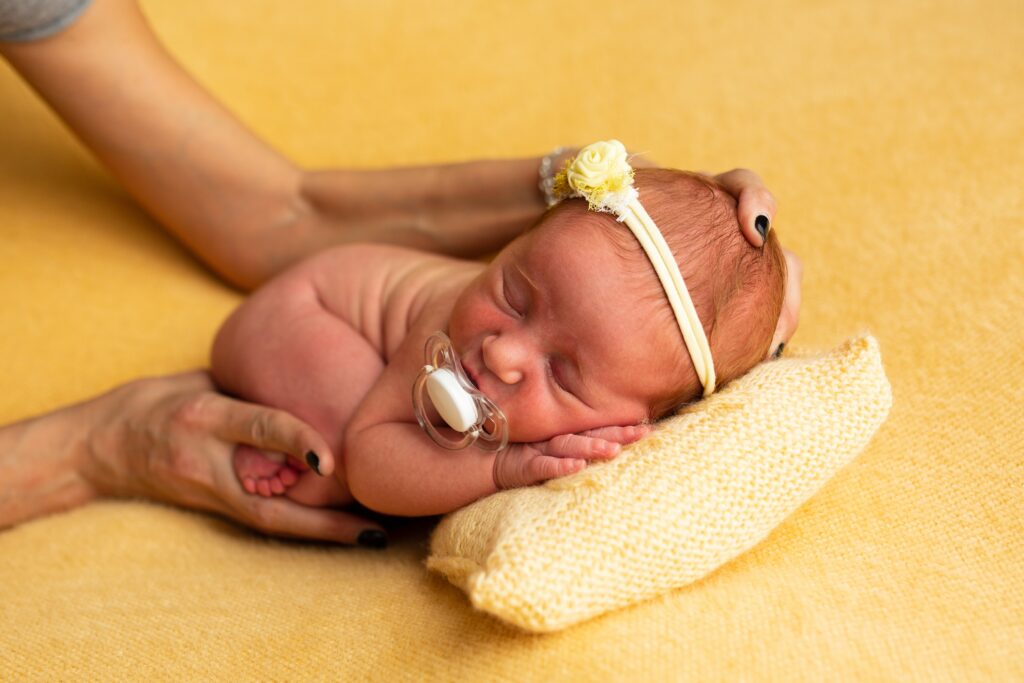
Some Other Helpful Tips on Pacifiers and You’re Newborn.
You can never know it all when it comes to your baby, so here are some more tips and things you need to know before getting into pacifiers.
- One-piece pacifiers
Never use pacifiers that are not one-piece. If there are more pieces, there is a great chance that sooner or later your baby will be able to dismantle those pieces, causing a significant checking hazard.
- Safe composition
Remember that the Pacifier is going to stay in your little angel’s mouth so it’s important to know if it’s safe or not.
The best tip is to buy one made up of natural rubber; this way, it’s baby safe and eco-friendly. getting a natural rubber pacifier will also keep them safe from a latex allergy.
- Clean Pacifiers
Pacifiers also need cleaning, and that doesn’t mean just washing them with water or soapy water. No, you need to boil them in water for just a minute or two to sterilize them properly. Keep in mind; you can’t be too careful with your baby.
- No bisphenol-A (BPA)
Pacifiers also have chemicals added to them, most of the time, it’s safe to have them around your baby, but BPA is not. Read around the box of your baby’s Pacifier, and if it contains BPA, don’t use it.
5. Stuffed Animal Pacifier
when your baby is old enough and the reverse psychology method doesn’t work on him anymore, you can get them a stuffed animal pacifier.
Frequently Asked Questions ( FAQs )
How Many Pacifiers Does A Newborn Need?
Not more than one or two because right now, they are not able to locate the pacifiers. Once they are old enough to hold and put things in this month, you can keep an extra one or two in their crib so that they can find it easily.
Is It Bad To Give A Newborn A Pacifier?
It’s up to the child’s and parent’s preference, but it’s not exactly harmful to give your newborn a pacifier because it helps with many things such as infant death syndrome.
When To Give A Baby A Pacifier When Breastfeeding?
Newborn babies don’t need one while breastfeeding but if you are generally talking through the breastfeeding era, then after they stop feeding, slip the Pacifier in right away. This trick might fade away once they get a hang of breastfeeding. To know more about what to do and what not, hop on to the read above.
Conclusion:
I’m sure that after this read, you won’t have to worry about how to keep the Pacifier in newborn mouth. This read will educate you all about what you need to know! So happy parenting to you!



